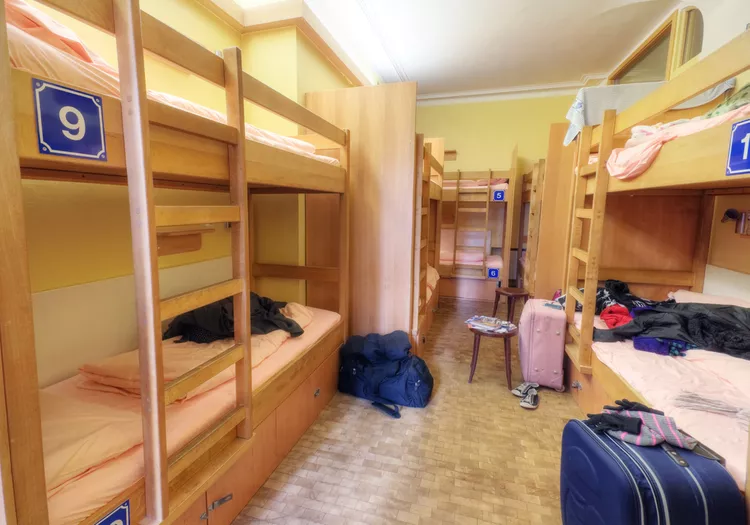Summary
Hostel lockouts were very common a decade ago, but thankfully aren’t so much anymore. They used to be popular because owners would often live onsite, so locking guests out was the only way the proprietor could either leave the hostel themselves or carry out some tasks without backpackers underfoot. Hostel lockouts are no longer as common, but they do still exist.
What Is a Hostel Lockout?
You can probably figure out from the name and the description above, but a hostel lockout is when a hostel closes its doors for several hours during the day. Nobody is allowed to stay in the hostel during this time, meaning you’ll have to find somewhere else to be for a couple of hours. The lockout typically occurs in the middle of the day and lasts for two-to-three hours. There are typically no exceptions; if a lockout is in process, you won’t be able to stay in the hostel, and that usually means you won’t be able to check-in to one, either.
Don’t confuse a hostel lockout with a hostel curfew, which is a totally different scenario. A hostel curfew means you have to return to the hostel by a certain time at night or you’ll be locked out; a lockout only occurs during the day.
Why Do Hostel Lockouts Exist?
Typically, these lockouts are for cleaning purposes. If cleaners need to make or change the beds, it’s easier to do so if backpackers aren’t in their space. Moreover, if they need to tidy up the bathroom or common room, they can do so more efficiently without guests present.
If the owners are the sole staff members in the hostel, utilizing a lockout is often the only time they can leave the premises to run errands. Some owners may decide to block out two hours each day, allowing them a break from being constantly on-site.
How Common Are Hostel Lockouts?
Lockouts are quite rare, especially in larger hostels where there are plenty of staff members present. Therefore, if you’re planning a trip, the odds of encountering a lockout are unlikely.
Advantages
While there aren’t many advantages to hostel lockouts, one potential benefit is that it encourages you to get outside and explore the area you’re visiting. While some may find this idea peculiar, travel burnout is real. Sometimes, you may prefer to lounge in the hostel instead of venturing out to yet another museum.
This phenomenon can affect most travelers eventually, and this is where a hostel lockout provides a positive push. It compels you to discover your surroundings, encourages physical activity, and limits screen time. Consequently, a spontaneous wander could lead you to discover hidden gems you might not have found otherwise.
Disadvantages
However, to be frank, hostel lockouts can be quite annoying. They disrupt your plans and might lead to you sitting outside the hostel, feeling bored and wanting to freshen up after a day of exploration.
Consider the various scenarios: if you couldn’t sleep due to a noisy roommate, what if you need to wait outside for three hours instead of taking a nap? Or if you just arrived from a long-haul flight, feeling jet-lagged, and have to wait by the front door because it’s currently closed? What if during a beach day, you need to clean up but must wait for the hostel to reopen? Such interruptions can be significant.
In short, hostel lockouts are a large inconvenience. While family-run hostels may find it easier to clean without guests, many hostels operate efficiently with travelers present.
Should You Avoid a Hostel That Has a Lockout?
Since many hostels do not implement a lockout policy, you likely have options. Therefore, why put yourself through the inconvenience of selecting a hostel that enforces one?
The only circumstances where choosing a hostel with a lockout might benefit you include it being the best-reviewed hostel in town or if it can save you a significant amount of money.





